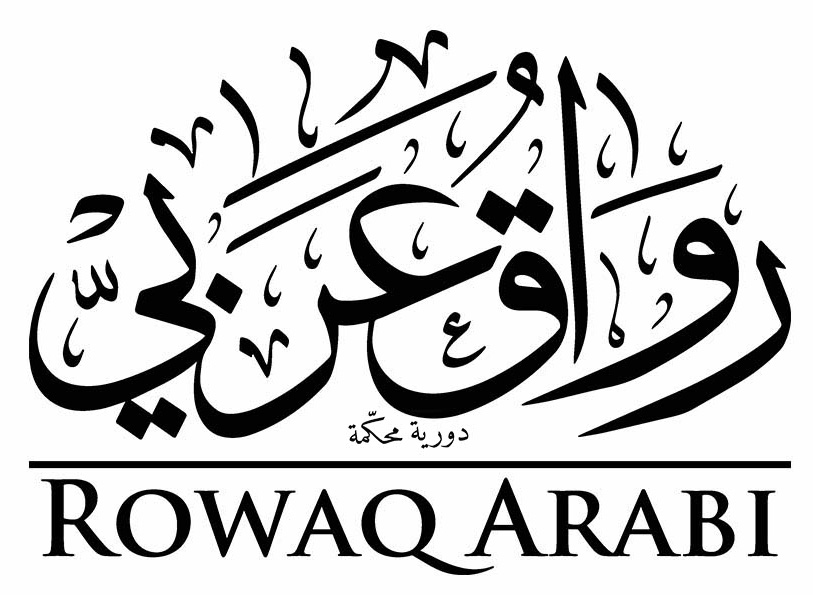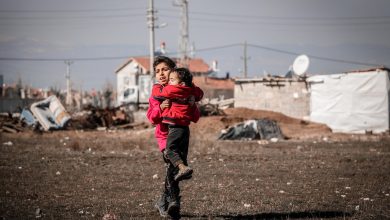Views: The Interdependency of States, Civil and Human Rights

Citation: Springborg, Robert (2023) ‘Views: The Interdependency of States, Civil and Human Rights’, Rowaq Arabi 28 (2), pp. 17-22, DOI: 10.53833/VBCA2190
States are both protectors and abusers of civil rights, which are those associated with citizenship. Human rights, by contrast, are universal in theory and not dependent upon citizenship, hence on states. But absent an effective global system of defining and protecting human rights, by default it is essentially left to states to perform those tasks. States that extend robust civil rights to their citizens tend also to be those which both incorporate human rights into their legal codes and practices, and actively promote and defend human rights globally. States thus constitute the independent variable in this tripartite relationship, with civil and even international human rights dependent upon them. It is thus primarily to state behaviour and the factors which condition it that one must turn to when assessing prospects for civil and human rights.
Strong, confident, accountable states are more likely to extend and protect civil rights, hence indirectly also human rights, than are weak, fearful, non-accountable ones, most of which in the Middle East and North Africa (hereafter, MENA) are. Nazih Ayubi rightly characterised them almost half a century ago as being ‘fierce but brittle’.[1] Unfortunately, global levels of state capacity, confidence and accountability have for at least a decade been declining toward the below average MENA, rather than increasing and possibly also lifting the performance of MENA states as well.
Different Types of Rights
The impact of this global decline is reflected in and between the four types of rights associated primarily with statehood, two of which refer to individuals, two to collectivities. Civil rights refer to protection of individuals’ rights to effectively participate in democratic politics. Economic rights are variously defined, but typically refer to rights to adequate food, housing, education, health, employment, and social security. Rights that pertain to collectivities are national, referring to the right of nations to exercise sovereignty; and subnational, which are those that pertain to identity groups, such as equal treatment before the law and rights to cultural expression of members of those groups.
The relative importance of these types of rights varies by country and over time within them. But their individual patterns reflect national political histories, for which the process of nation building assumes special importance. In Europe, for example, the French emphasise national over regional rights, which reflects the long history of a unified France dating to the monarchy and its consolidation of power by the late seventeenth century, which included linguistic unification. By contrast, the Italians elevate regionalism to almost shared status with national loyalty and identity, reflecting the historical autonomy of that country’s five principal ‘city states’ and affiliated territories until the latter half of the nineteenth century. Persisting Italian regionalism is reflected in more pronounced language variation than is the case in France. Belgium is yet more regionalised, divided not only into three specific ones, but in the case of Brussels, into nineteen communes. In the MENA, Egyptians ascribe few if any rights to subnational regions or identities, whereas in Lebanon and Iraq sub-national identities are constitutionally embedded, thereby attesting to the perception of their importance.
Another dimension along which are arrayed the relative importance of different types of rights is that of individual versus group based civil rights. The rise of political liberalism in England and its American colony in the eighteenth century, closely associated with the growing power of the bourgeoisie against the aristocracy in the former and against the colonial power in the latter, resulted in the preferencing of individual rather than group rights throughout their respective political economies, including in the constitution and its bill of rights in the newly independent United States. Moreover, those individual rights were overwhelmingly of a political rather than economic nature. For example, freedoms of expression were guaranteed whereas ‘life, liberty, and the pursuit of happiness’ was as close as the American constitution comes to ensuring economic rights. ‘No taxation without representation,’ the battle cry of the American colonials, implicitly subordinates the economic to the political. This conceptualisation of rights as inherently individual and being primarily of a political rather than economic nature underpinned the emergence of American capitalism as those rights were extended to corporations, treated legally as individual citizens despite their obvious collective nature.
In most of the MENA and virtually all of it formerly within the Ottoman Empire, rights were extended by law and practice not to individuals, but to millets–religiously based communities. Rights and obligations, ranging from autonomous religiously based legal/judicial systems, to payment of taxes, were extended to those millets, not to individuals within them, who were subject to the rule of both the sovereign Muslim authority as well as to that of the heads of their own communities. The concept of citizenship in the MENA thus did not rest on individual rights and duties, but on the responsibilities and privileges of millets. To the extent individual rights were granted, they were of an economic nature, such as those pertaining to taxation. The internal forces that weakened and contributed substantially to the collapse of the Ottoman Empire derived from ethnic and religious communities, key of which were those in the Balkans, rather than from assertions of individual rights, as was the case in the United States.
Because the rise of MENA states was for most a dialectical process between nationalists and colonial rulers, whether Ottoman or European, sovereign rights became central not only to their justifications and claims, but to the political beliefs of their populations. These nationalisms, forged in some cases in wars of liberation, subordinated concern with individual civil rights to those with establishing and preserving the nation.
The MENA legacy of rights adhering to communities and nations rather than individuals and being primarily economic rather than political, has been problematical for constitutionalism and the exercise of citizenship. Squaring the circle between MENA traditions, on the one hand, and Western, especially Anglo-American constitutionalism, on the other, has been challenging. The Saudi basic law, for example, conceptualises families, not individuals, as the constitutive unit of political society. Numerous Arab constitutions include specifications of economic rights, such as those in the current Egyptian constitution to fixed proportions of public funds to be spent on health and education. School curricula in Arab courses on citizenship generally conceptualise it not as individual political rights, but as a relationship between ruler and ruled in which achievements of the former entitle it to the loyalty of the latter, or more specifically as a social contract in which rulers provide material benefits in return for political acquiescence.[2] That political legitimacy of contemporary MENA governments, hence popular acceptance of them, should rest primarily not on free and fair elections, but on provisions of goods and services, is thus consistent with the region’s historical interpretation and state practices regarding rights.
States Under Stress
Given the substantial differences between much of the West and the MENA in historical and contemporary interpretations of civil rights, it is not surprising that when their respective states are subjected to stress, impacts on the exercise of rights within them varies substantially. The stresses to which they presently are subjected include global ones which affect both, as well as those specific to the respective regions and states.
Today’s world presents profound challenges to virtually all states, most of which are manifestly struggling to deal with them. One of if not the only surviving historical empire, that of Russia, appears to be following the Ottoman precedent of facing an existential challenge from a disaffected sub-national, ethnically and linguistically based regionalism, which is likely to spread to other areas of that weakening empire. Just as dealing with the fragmenting Ottoman Empire posed challenges to neighbouring states, so too does that of Russia’s present travails.
This challenge is playing out against a backdrop of intensifying global problems, which include slowing rates of economic growth in most regions, with the partial exceptions of East and Southeast Asia; increasing economic inequality between and within countries; a combination of rapid population growth, particularly in Africa, with population decline, especially in Europe and Japan; increased numbers of displaced persons and flows of migrants from poor to richer countries; various environmental stresses resulting from climate change, hence the need to spend vast sums on decarbonisation; the assertion of global power by China and to a much lesser extent Russia, two states with scant regard for any civil or human rights; a parallel expansion of the global reach of multinational corporations; and an upsurge of violent conflict, particularly within rather than between states. State frailty and outright collapse are increasingly common, especially in the MENA.
States’ standard responses to serious challenges are to ask, even demand their populations ‘rally around the flag,’ which implies subordinating their personal interests, and typically their rights, to the nation’s well-being or survival. Nineteenth century Europe provides a general example of states battening down their political hatches in the face of what they viewed as existential threats. In that case the threat was posed by proliferating demands for political and national rights, stimulated most directly by the French Revolution and Napoleon’s instrumentalization of its appeals. Immediately upon his defeat in 1815, worried heads of European states, including those of the Austro-Hungarian Empire, formulated under reactionary Clemens Metternich’s guidance an interlocking system of states intended both to reduce conflict between them and to subordinate internal challenges to any one of them. That this system beat back the uprisings of 1848 attests to its effectiveness and that it lasted more or less until 1914 to its durability. But it confronted numerous challenges along the way, some of which it defeated, such as the Paris uprising of 1871, and others of which it did not, such as Italy’s unification resulting from Garibaldi’s military successes. This era can reasonably be described as one in which Europe’s states allied with one another to defeat common challenges, key of which were those arising from their own peoples.
A contemporary Western example of the impact of stress on state behaviour is that provided by the US. Confronting its receding global pre-eminence, slowing economic growth, inability to reform an apparently archaic political system, and facing intensifying political polarisation, throughout the US individual rights are under attack in at least two different ways. One is increasing restrictions on freedom of expression, whether by the national, state, or local governments, or by a host of private institutions and organisations, including educational ones and social media. Another is substitution of collective, identity based for individual rights, as exemplified for example by demands for reparations for slavery supplanting those for fairer economic treatment for all suffering from economic hardships. This backsliding from America’s legacy of individual civil rights, which is in some cases engineered by the state and in other simply tolerated by it, is indicative of the perils state weakening poses to those rights.
Globally, the rise of authoritarianism at the expense of democracy bodes ill for civil and human rights. Citizens in much of the developing and even in some of the developed world are clearly willing to surrender even a claim to civil rights to ‘strong men’ whom they hope will deliver the goods they desire. This misplaced trust in the capacities and intents of authoritarianism is encouraged not only by China, but by growing camaraderie between actual and wannabee dictators. The third wave of democratisation has given way to a second wave of dictatorship, the previous wave being that which followed the end of WWI.
MENA Reactions
The reactions of MENA states and peoples to these various challenges reflect the region’s legacy of civil rights. As for states, two responses stand out. The first is the transition not from authoritarianism to democracy, as was hoped for as recently as the Arab uprisings in 2011, but from soft to hard authoritarianism in both MENA monarchies and republics. The key GCC monarchies of Saudi Arabia and the UAE have in Chris Davidson’s words, transitioned from sheikhly to sultanistic rule.[3] While neither Jordan nor Morocco ever experienced sheikhly rule in the sense that they had been governed by consultation with important tribal sheikhs, monarchical rule in both has become akin to that in presidential Arab systems. That rule is heavily dependent on coercive agencies, especially the intelligence services which in Morocco have usurped substantial amounts of monarchical power. In the republics the rule of tough authoritarians, such as Kais Saied in Tunisia, Bashar al Asad in Syria, and Abdel Fattah al-Sisi in Egypt; or of what in essence are ruling militias, such as Hezbollah in Lebanon or the Hashd al Sha’bi (Popular Mobilisation Forces) in Iraq, has vitiated any remaining semblance of civil rights.
The second state response is reminiscent of Europe’s Metternichian system of the nineteenth century. It is the formation of a counter-revolutionary coalition in the wake of the 2011 uprisings, now increasingly based in the leading GCC states. Its modus operandi has been to facilitate the rise to power of tough authoritarians, or preserve their powers once established, as well as to subordinate those authoritarians to key GCC states, much as what happened in the Metternichian system. So, a new counter revolutionary, hierarchical state order has been established in the MENA, an order in which civil and human rights have no standing. Outside of that order but impacted by it are the failed states of Libya, Sudan, and Yemen, with Lebanon and Syria on the margins between authoritarianism and breakdown. Since rights must be ensured by states, statelessness by definition denies populations any rights.
Popular reactions have not centred on opposing this authoritarianism. Instead, they have been concerned primarily with material welfare. Findings from recent waves of the Arab Barometer, for example, indicate that a growing percentage of respondents are increasingly concerned with economic well-being rather than with a preference for democracy.[4] They want states to reinforce social contracts more than they want them to extend and protect civil rights.
Conclusion and Implications
The paradox of the relationship between states and rights is that the former are both the providers and deniers of the latter. A secondary paradox is that strong, accountable states are more likely to provide rights, whereas weak, brittle ones are more likely to deny them. The implication of these relationships is somewhat counter intuitive. It is that civil and human rights advocates should seek to reinforce state capacities, including abilities to interact effectively with their citizens, rather than to weaken them in the hope that this will provide room within which rights can be exercised. Statehood is preferable to anarchy as a context for exercise of rights.
But current global pressures are placing states just about everywhere under stress, which causes them to be more defensive of their own perceived, narrow interests, rather than to seek to reinforce their capacities though more active policies of extending and defending rights. Within the MENA that tendency is further reinforced by a Metternichian coalition of counter-revolutionary states, intent on propping up authoritarianism against perceived challengers, including those focused on civil and human rights. If the history of nineteenth century Europe is any guide to likely outcomes in today’s MENA, it is that intermittent challenges to the authoritarian order posed by seekers of rights will occur, but few if any will succeed. Instead, seekers of rights are likely to be caught between repressive authoritarian states, on the one hand, and fragile or failed states on the other, in neither of which are they likely to succeed. A further obstacle is that external actors, including Western democracies, are even less interested in ensuring protection of civil and human rights in the MENA than they are in consolidating them at home, where their commitment is in any case now weakening.
[1] Ayubi, Nazih N. (1996). Overstating the Arab State: Politics and Society in the Middle East (London: I.B. Tauris).
[2] Meijer, Roel (2021) ‘Citizenship in Egyptian, Tunisian, and Moroccan History Textbooks,’ in Hicham Alaoui and Robert Springborg, The Political Economy of Education in the Arab World (Boulder: Lynne Rienner) pp. 41-46.
[3] Davidson, Christopher M. (2021) From Sheikhs to Sultanism: Statecraft and Authority in Saudi Arabia and the UAE (London: Hurst).
[4] Arab Barometer, Wave VII https://www.arabbarometer.org/surveys/arab-barometer-wave-vii.
Read this post in: العربية





